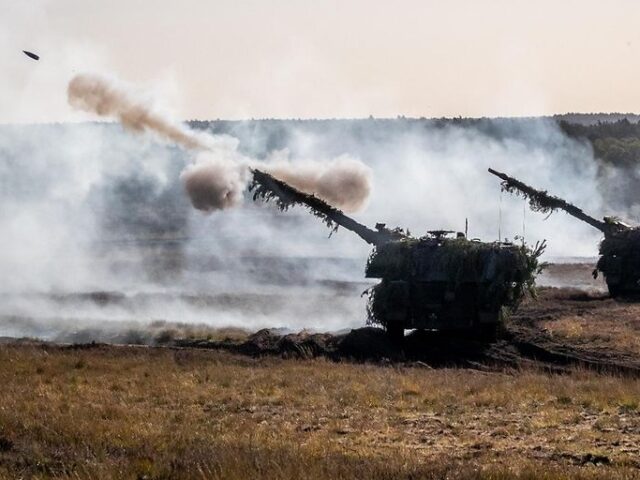United States intelligence was able to alert the German government to a Russian plot to assassinate the chief of Rheinmetall, the defence-industrial giant that has played a major role in keeping Ukraine armed.
Rheinmetall CEO Armin Papperger is said to have been one of the main targets of a Russian assassination plot. His company, a major global defence industry player, has received an €8.5bn German government contract to make 155mm shells for the Ukrainian armed forces and is planning to open an artillery shell factory in Ukraine.
The United States government is said to have detected the plot and informed their German counterparts, who were ultimately able to protect him.
The plot was originally reported by CNN, a favourite outlet for Ukraine war insider story dumps for the U.S. government, and subsequently widely reported in the German national and wider European press.
The news outlet cited unnamed U.S. and German government sources and asserted the attempt to kill Papperger was “one of a series of Russian plans to assassinate defence industry executives across Europe who were supporting Ukraine’s war effort”.
Russia has issued the standard denial of the allegations. German broadsheet Die Welt cites Kremlin spokesman Dmitry Peskov who called the claims “fake news” that shouldn’t be “taken seriously”.
The alleged plot to assassinate a German citizen involved in supporting Ukraine comes amid months of growing reports and cases of Russian sabotage and espionage inside European states. As previously reported on the issue:
There were several such incidents across the continent in April, including the arrest of a Polish national in his home country, accused of conducting hostile reconnaissance against the airport used by Ukrainian President Volodymyr Zelensky when he flies abroad.
Because Ukraine is covered by a no-fly zone, when politicians enter and leave the country they travel first by VIP train across the Polish border and then to Rzeszów-Jasionka Airport, where flights can then take them worldwide. The Polish Prosecutor said of the allegations against the man: “The findings of the investigation show that the suspect’s tasks included collecting information that would be helpful in planning a possible assassination attempt on the life of the President of Ukraine by the Russian services… the detainee was charged with reporting readiness to act for foreign intelligence against the Republic of Poland… The act is punishable by up to 8 years in prison.”
In the same month two German-Russian dual citizens were arrested in Germany over alleged hostile reconnaissance of a U.S. Army base in Bavaria used to train Ukrainian soldiers. The pair were said to be planning to “commit explosives and arson attacks, especially on military infrastructure and industrial sites in Germany”. One of the suspects in the case, Dieter S., was accused of: “conspiring to cause an explosive explosion and arson, acting as an agent for sabotage purposes… membership in a foreign terrorist organization and preparing a serious act of violence that endangers the state.”
Again in April five people in the United Kingdom were facing charges over an arson attack that burnt out a Ukrainian-owned business in London. At least one of the group was charged with hostile activity intended to “assist a foreign intelligence service carrying out activities in the UK”. In February of this year Estonia arrested ten alleged saboteurs, who were accused of working to spread fear as part of a “hybrid operation”, the neologism now in currency for war by other means.
A remarkable case in December 2023 saw 14 ‘spies’, who among their number were Ukrainian refugees, sentenced by a court for a plot to gather information and launch a variety of actions and attacks. The court heard how the group were in communication with Russian intelligence and had been promised payments in cryptocurrency payments in return for their work.
The bounties on offer from Moscow were said to have included $5 for putting up a poster disseminating pro-Russian or anti-Ukrainian propaganda, or $400 for installing a wireless surveillance camera watching a port, airport, or railyard where military equipment transited from Europe to Ukraine. $10,000 in crypto was apparently offered in return for derailing a military train carrying equipment to Ukraine.
While derailing a train may seem fanciful, such tactics are already in widespread use in the Ukraine war itself and beyond, with pro-Kyiv saboteurs working overtime behind Russian lines to prevent ammunition and resupply trains reaching the front line, frequently blowing lines, burning equipment, and derailing trains. In some cases the Ukrainian partisans have gone further, planting car bombs on the personal vehicles of targets within Russia.

COMMENTS
Please let us know if you're having issues with commenting.